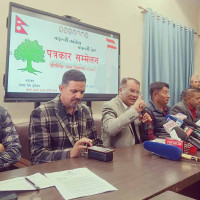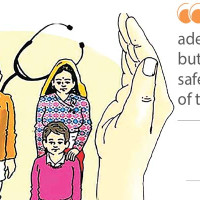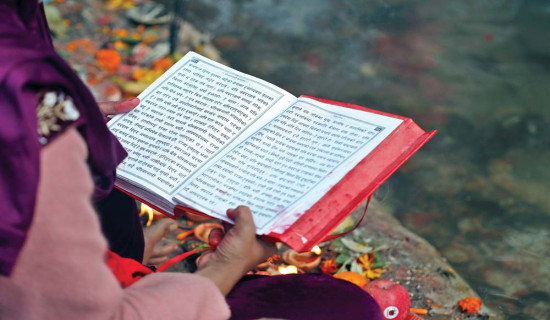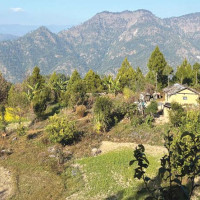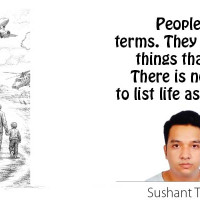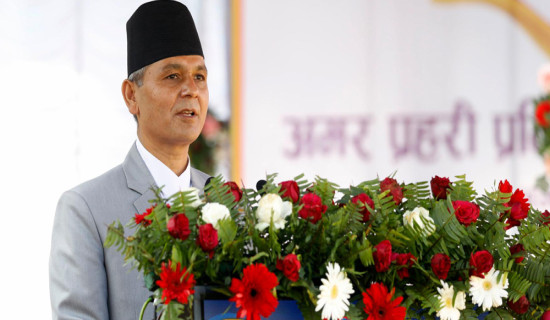- Saturday, 31 January 2026
Democracy Day
Parties Must Embrace Good Culture
The nation is marking the 74th National Democracy Day today with great fanfare to commemorate the dawn of democracy with the elimination of the 104-year-old autocratic Rana rule. It was possible for the Nepali people and the political parties, including the Nepali Congress (NC), to make the first people’s uprising for democracy a success with their firm determination and untiring efforts. Many freedom fighters had attained martyrdom in the course of their fight for democracy. The Rana oligarchy would not have come to an end without their great sacrifice. Since the NC was instrumental in ushering in democracy, it was able to secure an overwhelming two-thirds majority in the parliamentary elections held in 1959.
But King Mahendra resorted to strangling the hard-won democracy at birth to impose his direct rule, dampening the people’s hopes for openness and freedom. He suspended the constitution and dissolved the parliament. He dismissed the cabinet headed by popular leader BP Koirala and imprisoned Koirala and his close associates immediately. Along with that unwanted royal coup, the king announced the launch of the despotic Panchayat rule. The ambitious king wanted to rule the nation as an absolute monarch. He and his aides were not satisfied with the election results. He was in a state of hesitation for several weeks before asking NC parliamentary party leader Koirala to form a government. It clearly hinted at the king’s unwillingness to consolidate democracy. Since the beginning, he has intended to prove in one way or another that democracy is not suitable for Nepal.
People-centric steps
The first elected government was gaining ground because of its people-centric steps. It did its bit for the welfare of the common people. Thus, the government was able to win the hearts and minds of the general public with its numerous landmark initiatives, including the land reform measures. But such popular activities deeply hurt the landed aristocrats. That section had long dominated the army. That feudal group must have instigated the king to terminate democracy.
Koirala, a visionary leader, had a different perspective on development. His idea was that guarantees of individual liberty and civil and political rights alone were inadequate for a poor nation like Nepal to move on the path of economic transformation and social development. According to him, democratic socialism was the solution to the nation’s problem of underdevelopment.
It is worth mentioning that Koirala was also able to boost Nepal’s international image when he delivered his influential statement at a meeting of the United Nations. He was also successful in enhancing Nepal’s relations with neighbouring countries. Thanks to Koirala’s charismatic leadership and diplomatic acumen, the longstanding border disputes between Nepal and China were settled.
The royal coup plunged Nepal into another dark phase in the nation’s political history. However, the nation had to go through a difficult period for three long decades. The people were denied freedom and many democratic rights once again. Although the Panchayat rule had put a ban on political parties, the latter continued to stand out against the autocratic rule. A lot of democracy aspirants had to sacrifice their lives in their bid to restore democracy in the country, while numerous others faced physical and mental torture.
But the oppressive Panchayat rule collapsed with the intensification of the people’s movement in 1990. And multiparty democracy was reinstated in the country, generating a lot of hope and optimism among the people. A democratic constitution coupled with the provision of constitutional monarchy was introduced, paving the way for democracy to be institutionalized. The NC was voted to power again.
The initial years were good in terms of political stability and economic growth. But unfortunately, the intra-party feuds within the NC started growing precariously. Many lawmakers elected on a Nepali Congress ticket strongly opposed the then prime minister, Girija Prasad Koirala, even in parliament. Then, Koirala dissolved the House and announced a snap poll. The step was reviewed by the Supreme Court. The judiciary, however, ruled in favour of dissolution. Then, the nation went to elections. A hung parliament was formed. With that poll outcome, political instability began in the nation.
In the 1999 elections as well, the NC was given a majority. Its leader, Krishna Prasad Bhattarai, became the prime minister. But the'saint’ leader Bhattarai could not remain in power for long due to infighting within the party. At that time, the Maoist insurgency was escalating. With the Royal Palace Massacre in June 2001, the country passed through a worsening political scenario. Taking advantage of that situation, King Gyanendra declared a state of emergency, dissolved the parliament, and suspended major constitutional rights in February 2005. He grabbed all the executive power for himself. Thus, Gyanendra seemed to have followed in his father Mahendra’s footprints. But his misstep ultimately led to his downfall. Seven political parties, including the NC and CPN-UML, reached an understanding to join hands with the erstwhile CPN-Maoists to end the monarchy once and for all and reestablish democracy in the country.
As per their agreement, the parties staged nationwide protests against the monarchy. In 2006, Gyanendra agreed to give democracy back to the people. The parties proceeded with their plan to draft an inclusive democratic constitution through the Constituent Assembly (CA). In 2008, the first CA election was held. But the CA failed to carry out the responsibility entrusted to it. In 2013, the second CA polls were held. And it wrote the constitution that was promulgated in September 2015.
However, even after the introduction of the new national charter, the nation has failed to address a myriad of national issues and challenges. One of the main factors behind this is that the political parties and their leaders have focused their attention only on acquiring power. They appear to have failed to raise themselves above their trivial partisan and personal interests. This has really become a matter of great concern.
The federal Republican system has yet to be institutionalised, although the new constitution has been in effect for several years. Many of the laws that are required to implement the constitution are yet to be enacted. Political anomalies are widespread. Political parties are often found infringing upon the constitution. In addition, the national economy is still in the doldrums. The problem of unemployment seems to have been exacerbated, forcing hundreds of thousands of youths to leave the country for a job opportunity and higher education. What is more saddening is that the nation’s public debt has been rising alarmingly.
Corruption control
The rampant corruption in the country has hampered the process of overall development. The situation appears to have worsened with the increased involvement of politicians in corruption. This tendency has created a sense of distaste among the people. While the government has stepped up some measures to check corruption, its attempts alone will not be sufficient to control this scourge.
What is also lacking is a good political culture in the country. As we celebrate National Democracy Day, all political parties must express their sincere commitment to embracing democratic values and act accordingly. Otherwise, their lip services alone will not make any difference to the lives and livelihoods of the common people. They must stand united when it comes to the task of nation-building. Forging political consensus is a must before taking major decisions and rectifying mistakes made in the past. As everyone has different intelligences, the nation must go for meritocracy in order to make progress.
(The author is former deputy executive editor of this daily.)



-original-thumb.jpg)
